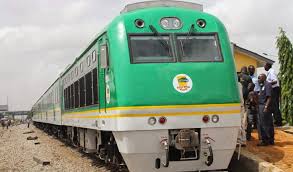The Nigerian Railway Corporation (NRC) has explained that train services on narrow-gauge lines in parts of Kaduna and Niger States remain suspended due to insecurity, vandalism, and persistent banditry. The corporation said the safety of passengers, railway staff, and infrastructure cannot be guaranteed along these routes, hence the decision to maintain the suspension of operations.
Speaking in an interview with the News Agency of Nigeria (NAN), Mr. John Otivere, who represented the District Rail Superintendent of NRC Minna, Mrs. Blessing Okanezi, confirmed the ongoing challenges that have stalled train operations in the region. While narrow gauge trains still operate on the Lagos-Kano corridor, sections passing through volatile areas in Kaduna and Niger remain unsafe.
Affected areas include Gwada, Sarkin-Pawa, Kuchi, and Gaddani—all of which have had their train stations shut indefinitely. Other impacted communities such as Wushishi, Pakara, and Akere have not experienced train movement since December 2022, with residents and commuters now relying on road transport despite growing security threats on highways.
Otivere stated, “The locations mostly affected by insecurity are Gwada, Sarkin-Pawa to Kuchi in Niger, down to Gaddani towards Gwadada in Kaduna State. The Gaddani train station, located at the border between Niger and Kaduna, has remained closed for a long time due to bandit attacks.”
Speaking further, NRC’s District Internal Auditor, Mr. Femi Adewakun, who represented the District Manager, Alhaji Suleiman Obafun, emphasized that the corporation continues to maintain its infrastructure along the narrow gauge network, despite the suspension. He noted that regular inspections, servicing of locomotive engines, and maintenance of rail tracks are ongoing, but full operations cannot resume in affected areas until safety is restored.
He added that the NRC is committed to keeping the infrastructure in good condition, hoping that train services can resume once the security situation improves. “We cannot deploy staff or run services in areas where safety is not guaranteed,” Adewakun stressed.
District Civil Engineer, Mr. Akin Atanda, also shed light on the extent of damage done to railway infrastructure across Niger and Kaduna. He said that widespread vandalism and environmental degradation have worsened the situation, pointing to specific cases where tracks were stripped or completely eroded.
In the Beji axis, fastenings that hold tracks together were reportedly stolen, while in Mokwa, erosion has completely washed away large sections of the rail line. He noted that while some vandals have been apprehended and prosecuted, security threats from bandits still make it difficult for engineers to access and repair certain parts of the track.
Atanda said, “We have arrested and prosecuted some vandals, and some are already serving jail terms. But in areas where bandits have taken over, it is impossible to even begin any form of repair or inspection.”
The NRC has therefore called for urgent government intervention to restore security across affected regions. The corporation insists that no meaningful progress can be made without full collaboration with security agencies and relevant authorities. It stressed the need to protect railway assets, including tracks, stations, and personnel, from further attacks and destruction.
Communities in the affected areas have also appealed to the federal government for help. Many residents say the suspension of train services has increased transportation costs and exposed them to more risks on the road, where kidnappings and robberies are on the rise.
Experts in the transport sector argue that the continued insecurity not only threatens the viability of Nigeria’s railway system but also undermines efforts to decongest roads and reduce reliance on trucks for goods movement. They warned that unless critical security issues are addressed, Nigeria’s rail transport revival may suffer major setbacks.
As the NRC maintains watch over its facilities and awaits an improvement in the security climate, calls are growing for a holistic response involving the military, police, community leaders, and railway personnel to jointly tackle the menace of insecurity and bring relief to the region’s transportation system.
